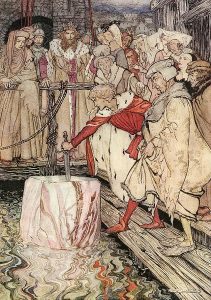
“When Paul and his companions . . . came to the border of Mysia, they tried to enter Bithynia, but the Spirit of Jesus would not allow them to.” Acts 16:6
We’ve come to the end of 2021, in many ways a very challenging year. Though we have experienced grief, loss and restriction, there has also been joy and gratitude for the simpler things in life, for healing and growth. It’s good to pause and contemplate for a moment before we step into the future.
Perhaps we need to make sure that we don’t drag old debts along with us into a new year. Perhaps we need to let go of old grudges. “To mourn a mischief that is past gone, Is the next way to draw new mischief on,” says Shakespeare (Othello).
Perhaps there are dreams or relationships that haven’t worked out as we had hoped, but it’s unproductive to keep banging away on locked doors. We need to turn around and discover what else God might have in mind for us.
Our daughter has a dog-walking business, and for a number of years, happily rented farmland to allow the dogs freedom to run. But things became complicated when the neighbours there had young children come to live with them. By itself that may not have been a problem, but when food was also set out on this adjacent property as hunting bait, the dogs were continually attracted to it. Snow fence barriers and other tactics were tried, but nothing proved effective. Eventually it was clear that the old arrangement was no longer workable. In perfect timing, a farm just up the road was now available. If this had come up sooner, that option would not have existed as the pasture had been let for grazing cattle. It took some adjustments, but the dogs are now happily exploring their new environment.
It is sometimes very difficult to discern the way ahead. But, regardless of our circumstances, one thing is certain. The way back, the past, is closed. Like a baby coming to term, our current safe place will eventually banish us. Like an eagle trains her young, life becomes increasingly uncomfortable until we are forced to fly.
In his book, Let Your Life Speak, Parker J. Palmer tells of his friend Ruth’s wisdom at a time of searching in his life:
“I’m a birthright Friend,” she said somberly, “and in sixty-plus years of living, way has never opened in front of me.” She paused, and I started sinking into despair. Was this wise woman telling me that the Quaker concept of God’s guidance was a hoax?
Then she spoke again, this time with a grin. “But a lot of way has closed behind me, and that’s had the same guiding effect.”
Our perspective can be narrow. It’s only later that we see the wisdom of not having gotten our way when we desperately wanted it. God’s guidance for us always comes out of love, whether it’s “Yes” or “No.” His timing will always be perfect, so we can trust that.
Through way closing, or way opening, may you experience God’s guidance to live abundantly in the year ahead!

